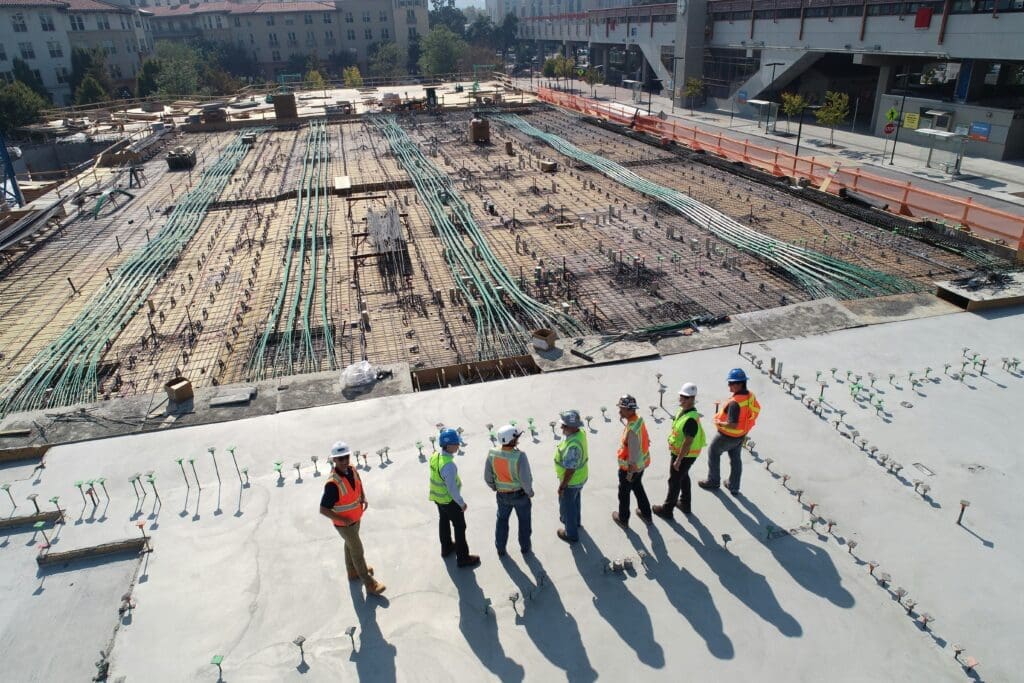Tax compliance is particularly challenging in the construction industry due to its unique characteristics, including a fluctuating workforce, diverse contract types, and specific rules for materials and equipment. This comprehensive overview highlights the primary tax issues faced by construction companies and explains how partnering with a Certified Public Accountant (CPA) can help manage these complexities and ensure construction taxes compliance.
Introduction
In the construction industry, managing taxes effectively is as crucial as managing construction projects themselves. The industry faces specific challenges due to its work nature. Sales tax applies to materials, manage employment taxes for a changing workforce, and address income tax based on contract type. Understanding these issues and navigating them efficiently is key to maintaining profitability and compliance.

Key Tax Issues in Construction
1. Sales Tax on Materials
- Overview:
- Construction companies often purchase materials for direct use in projects or as part of client services. The way sales tax applies can vary significantly by jurisdiction.
- Challenges:
- Determine whether to charge sales tax at the point of purchase or pass it through to the client.
- Managing exemptions for certain types of construction projects (e.g., government contracts may be exempt from sales tax).
- Strategies for Compliance:
- Accurate Documentation: Keep detailed records of all purchases and sales, including the amount of sales tax paid on materials.
- Understand Local Laws: Sales tax laws vary by state and even by locality. Ensure you understand and comply with the rules specific to the locations where you operate.
- Use resale certificates to purchase materials tax-free for projects sold to clients.
- How a CPA Helps:
- A CPA can help construction companies navigate these rules by providing advice on the applicability of sales tax and assisting with the proper documentation and procedures to minimize tax liabilities and ensure compliance.
2. Employment Taxes for a Fluctuating Workforce
- Overview:
- The construction industry often employs a workforce that can change significantly from project to project, leading to challenges in managing employment taxes.
- Challenges:
- Handling varying levels of employment taxes due to seasonal changes in workforce size.
- Classify workers correctly as employees or independent contractors to ensure proper tax withholding and payment.
- Strategies for Compliance:
- Consistent Worker Classification: Use clear criteria to determine whether workers are employees or contractors and ensure consistent application of these criteria.
- Regular Review of Payroll Practices: Adjust payroll systems to account for the changing workforce and ensure all employment taxes are correctly calculated and paid.
- How a CPA Helps:
- CPAs can assist with payroll management, ensuring accurate calculation and payment of payroll taxes. They can also provide guidance on worker classification and help respond to any audits or inquiries from tax authorities.
3. Income Tax Considerations for Different Contract Types
- Overview:
- Structure construction contracts in various ways, each impacting income recognition and tax liability differently.
- Types of Contracts:
- Fixed-Price Contracts: Revenue and expenses are recognized at specific milestones, which can affect the timing of income recognition.
- Cost-Plus Contracts: Revenue is recognized based on the costs incurred plus a margin, which may lead to different tax considerations.
- Time and Materials Contracts: These contracts can lead to variable revenues and costs, impacting the timing and amount of taxable income.
- Challenges:
- Determining the appropriate method for recognizing revenue and expenses for tax purposes.
- Managing payments and expenses to align with tax reporting requirements.
- Strategies for Compliance:
- Percentage of Completion Method: Often used to recognize revenue on long-term contracts, matching revenue with the progress of the project.
- Completed Contract Method: Used to defer tax payments until a project is completed, which can be beneficial for managing cash flow.
- How a CPA Helps:
- CPAs provide guidance on choosing and implementing the most appropriate accounting method for each contract. They help ensure that financial statements and tax returns are prepared in accordance with applicable accounting standards and tax laws.
Conclusion
Tax compliance in the construction industry involves navigating complex issues, from sales tax on materials to employment taxes and contract-specific income tax considerations. By partnering with a CPA, construction companies can ensure compliance with these regulations and optimize their tax situation. A CPA’s expertise in tax law and industry challenges ensures significant savings and financial stability for construction projects.

